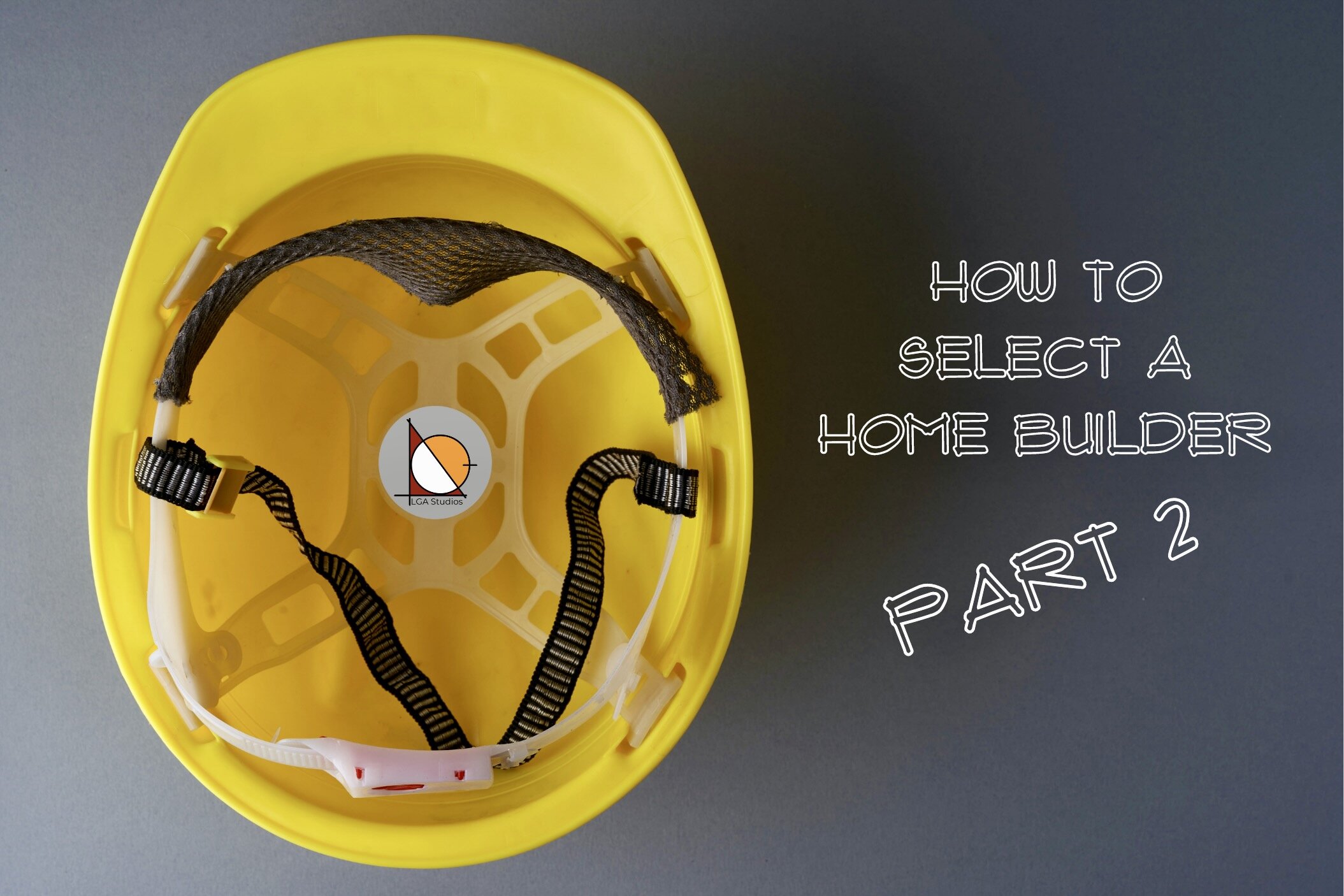How to Select a Home Builder, Part 2
▱ Part 2: Setting up Interviews ▱
By Larry Gilland
Interviewing the contractors: Your research has provided you with a number of contractors’ names. Now the real work begins. Prepare yourself for a very enlightening experience. The interview process contains the following steps:
1) Set up interview appointments by phone
2) Prepare / ask pertinent questions
3) Tour through houses (incomplete & completed)
4) Obtain references
5) Obtain bids on house plans (if you already have a set of plans)
6) Notify builders of your decision
▱ Set up interview appointments: Phone each of the builders on your list. It will be rare that the builder answers, as most builders keep odd office hours due to the demands of their job. Log the date and time you phoned them. Note how long it takes them to return your call. This detail should alert you to the builder’s efficiency and availability.
▱ Prepare / ask pertinent questions: Be prepared to start your comparative shopping by having a list of questions to ask when they return your call. It’s convenient to have a list of questions which cover the same ground with a number of contractors. Here’s a list of sample questions, and what the answers will tell you:
1. How long have they been building houses?
You’ll want someone who has a great deal of experience but is flexible. They must be aware of state-of-the-art building techniques and materials. Beware of the contractor who may be "burned out” or will not make the extra effort to research your requirements.
2. What is their field of expertise?
A contractor who has more expertise in commercial building may or may not be as familiar with residential construction.
3. How long have they been in the construction business in this vicinity?
The contractor who has built homes in the area near your property is familiar with the area’s idiosyncrasies, building codes, and protective covenants. As a result, preparation research time will be decreased. However, a diligent builder new to the area will be able to jump through these hoops as well. If a builder is new to the area, find out where they were prior to their relocation. Unfortunately, bankrupt and unreliable builders leave victims behind, standing (literally) in a quagmire to set up shop in another unsuspecting locale. Don’t hesitate to check the builder out...buyer beware! You want your builder to be there after the project is complete so that they can finish “call backs” (a homeowner’s request that the builder redo or repair some situation which has occurred with the house). DO NOT EXPECT YOUR CUSTOM HOME TO BE PERFECT. Although we would like this to be the case, it is an exceptional situation. With the right contractor and designer, the “call backs” will be trivial.
4. With what lending financial institution(s) do they work?
The answer will provide information about which lending facilities 1) provide construction loans, 2) are better to work with, 3) Provide better rates, and 4) have developed a rapport with the builder. The lending facilities will also be able to give you a reference about the builder. You will want to phone the lending facility later to ascertain their opinion about the builder.
5. How many homes / projects do they build each year?
A builder who builds a large number of homes each year cannot possibly devote quality time to each. Does the builder supervise the construction themselves, or do they hire an on-site supervisor? If so, you’ll be paying an additional salary. If there is a supervisor, how long have the builder and supervisor been working together as a team? The longer, the better because this increases the possibility of successful communication. It’s simply too expensive to have your ideas misunderstood.
6. How long, on the average, does it take the builder to complete construction at a home?
Six to 24 months is not unusual for a custom home depending upon the complexity of the project. Some builders pride themselves on completing a home in less than 100 days. Their reasoning is that this saves the homeowner interest costs on the construction loan. These savings aren’t necessarily a big deal though. You will only pay interest on the money that has been spent, so in the beginning very little money is paid out. The big interest payments come at the end of the project when all the money from the construction loan is allocated. And even though interest may be saved with a shorter construction time, haste can mean waste when too little time is spent building the house. If the subcontractors are hurried to meet an unreasonable deadline, they may use shortcuts resulting in inferior workmanship or may not take the time to use materials most efficiently. Remember to give yourself (and others) adequate time, allowing extra time if possible.
Note: Interview questions to be continued in Parts 3-5, so be sure to check back with this blog!





